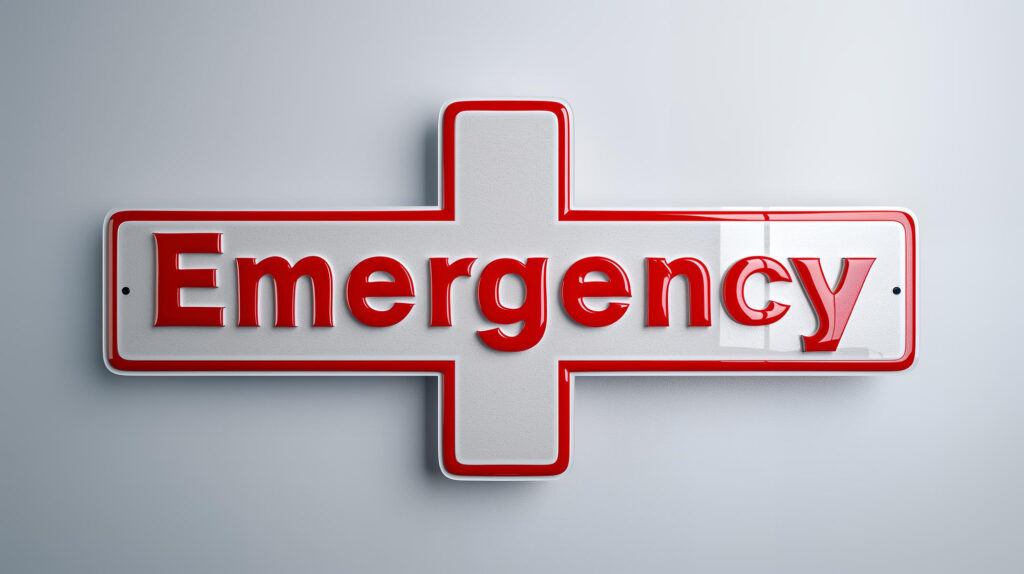The Vital Role of ED Coders in a Fast-Paced World
Emergency departments (EDs) are bustling hubs of activity. Patients present a wide range of medical conditions, requiring urgent attention and precise diagnosis. Behind the scenes, another essential role contributes significantly to the smooth functioning of operations: the Emergency Department (ED) coder.
ED coders serve as the unsung heroes of the healthcare revenue cycle. They decode the intricate medical services rendered in the ED into standardized medical codes. Subsequently, these codes are utilized for billing purposes, ensuring equitable reimbursement for the provided healthcare services.
However, the world of ED coding is everything but stagnant. Unlike many coding specialties, the ED environment presents coders with unique hurdles every day. Here’s a look at the fast-paced world of ED coders and the special challenges they face:
- Time constraints: ED visits are unpredictable and coders frequently have little time to review complex medical records and assign proper codes. The pressure to work rapidly while remaining precise is an ongoing difficulty for ED coders.
- Incomplete Information: Unlike scheduled appointments, ED patients may not have a full medical history available. Coders frequently deal with insufficient data or ambiguous diagnoses, necessitating close collaboration with physicians for clarification.
- Ongoing Adaptation: The healthcare landscape is continuously evolving, introducing new procedures, medications and coding regulations regularly. ED coders must commit to lifelong learning, staying abreast of these changes to ensure precise code selection.
Despite these challenges, ED coders play an important role in the seamless operation of your healthcare institution. In the following sections, we’ll look at the unique abilities and tactics that make ED coders such important assets.
Quick Decision Making
The Art of Coding on the Fly
Every second counts in the high-pressure setting of an emergency department. Patients require care and accurate billing depends on fast and precise coding. ED coders’ ability to make quick decisions comes in handy here.
Unlike other coding specialties, which deal with more predictable settings, ED coders are always confronted with the unknown. Patients may present with a range of symptoms that necessitate rapid care before a firm diagnosis is made. ED coders should be able to:
- Analyze Medical Records Quickly: They must efficiently sift through often-bulky medical records, extracting key details about patient history, presenting complaints, diagnostics and treatment provided.
- Apply Coding Knowledge Accurately: With this information, they need to select the most appropriate medical codes based on their in-depth knowledge of coding systems (ICD-10-CM, CPT®) and healthcare guidelines.
- Prioritize Coding Tasks: They must prioritize coding tasks effectively, juggling urgent cases with the need to maintain accuracy for all patients.
Developing these quick decision-making abilities involves a mix of factors:
- Strong Medical Knowledge: A solid understanding of medical terminology, anatomy and physiology enables ED coders to swiftly grasp the complexity of various medical cases.
- Experience: Working in a fast-paced ED workplace improves their ability to swiftly assess events and make accurate coding decisions.
- Access to reputable coding resources and reference materials is critical for validating code selection in the event of ambiguity.
By improving these skills, ED coders become competent at navigating the fast-paced world of the ED, resulting in timely and accurate coding that leads to efficient billing and financial well-being for your organization.
Coding for Diverse Cases
A Day in the Life of an ED Coder
Picture this: an emergency ambulance arrives at the Emergency Department (ED), swiftly opens its doors and paramedics swiftly bring in a patient with chest discomfort. This is merely one of the various medical situations that ED coders face regularly. Unlike a podiatrist’s clinic or a cardiology center, the ED encounters a broad range of diseases and injuries, each necessitating precise coding for accurate billing.
How do ED coders manage this diversity, you may wonder? Below is a breakdown for you:
- Adaptability is Vital: ED coders must be adaptive. One minute they may be coding for a shattered bone, the next for a possible stroke or severe allergic response. They must be able to customize their coding strategy based on the unique circumstances of each situation.
- Seeing the Big Picture: While attention to the details of a medical record is critical, ED coders must also understand the “big picture” of a patient’s contact. This involves the resources used for diagnosis and treatment, recognizing the severity of the illness, as well as the patient’s final status (admitted, discharged, etc.).
- Staying Updated with Emerging Codes: New medical illness, procedures and coding requirements are continually emerging. ED coders must stay up to date on these changes.
Let’s delve into a variety of cases that ED coders encounter:
- Trauma: ED coders must grasp the intricacies of coding for various types of traumas, ranging from lacerations and fractures to more complex injuries, taking into account severity and location.
- Acute Illness: Accurate coding for respiratory infections, cardiac events and sudden illnesses hinges on understanding symptoms, diagnostic tests and treatment approaches.
- Behavioral Health: With an uptick in mental health cases in the ED, coders need to be well-versed in the specific coding protocols for these instances.
By honing their ability to adapt to diverse scenarios, ED coders ensure that your organization is appropriately reimbursed for the extensive array of services offered in the ED.
Collaboration with Healthcare Providers
The Unsung Teamwork in ED Coding
Accurate coding in the emergency department (ED) is not done in isolation. While ED coders possess extensive medical knowledge and coding expertise, effective communication as well as collaboration with healthcare providers are essential to ensure patient charts are complete and precise. This collaborative effort takes various forms:
- Communication with Physicians: Physicians frequently provide additional details or clarifications about a patient’s condition that may not be fully documented in the initial chart. By maintaining clear communication with ED coders, this crucial information can be captured, leading to the selection of the most accurate codes.
- Collaboration with Nurses: Nurses play a crucial role in documenting patient assessments, procedures and administered medications in the ED. ED coders often depend on detailed nursing notes to ensure all services are documented accurately for coding purposes.
- Teamwork with Other Departments: Depending on the patient’s needs, specialists from different departments (e.g., radiology, cardiology) may be part of the ED visit. ED coders may need to collaborate with these specialists or their staff to obtain specific details essential for accurately coding the services provided.
Strong communication skills and a collaborative mindset are required for ED coders. Here’s how these talents can help your organization:
- Improved Coding Accuracy: Effective communication and collaboration with healthcare providers help ensure that patient charts are complete and precise, reducing the chances of coding errors and potential claim denials.
- Streamlined Workflow: Clear communication facilitates a seamless workflow between the ED and the coding department. Physicians and nurses can dedicate their focus to patient care, knowing that coders possess the necessary information for precise billing.
- Enhanced Patient Care: Accurate coding results in proper reimbursement for services provided. This enables your organization to invest in superior equipment, technology and resources, ultimately enhancing overall patient care.
By fostering a collaborative environment with healthcare providers, ED coders play a pivotal role within a well-functioning healthcare team, ensuring efficient operations and exceptional patient care.
Stress Management
Keeping Cool Under Pressure in the ED
The fast-paced environment of the emergency department (ED) alongside the ongoing demand for accuracy can have a draining effect on even the most seasoned ED coder. Developing effective stress management skills becomes essential for upholding concentration and accuracy in coding. Here are several approaches that ED coders can utilize:
- Prioritization and Time Management: Mastering the art of prioritizing tasks and efficiently handling their workload can prevent ED coders from feeling overwhelmed. Practices like crafting to-do lists and scheduling breaks can prove highly advantageous.
- Maintaining a Healthy Work-Life Balance: Allocating time for relaxation and personal pursuits outside of work enables ED coders to rejuvenate and come back feeling revitalized and focused.
- Utilizing Relaxation Techniques: Engaging in deep breathing exercises, meditation or brief walks can serve as valuable tools for coping with stress in the present moment and preserving a sense of tranquility during a hectic shift.
- Seeking Support: Establishing a robust support network with peers or mentors in the coding department can offer a secure space to express frustrations and exchange strategies for stress management.
Investing in the well-being of your ED coders benefits your organization as a whole. Here’s why:
- Reduced Errors: Stress can cause exhaustion and decreased focus, perhaps leading to coding errors. By minimizing stress, ED coders can retain accuracy and reduce costly claim denials.
- Increased Productivity: A calm and focused coder is a productive coder. Reduced stress levels result in increased production and efficiency in the coding department.
- Improved Morale: When ED coders feel supported and have access to appropriate stress management methods, they are more likely to report higher work satisfaction and lower turnover.
By emphasizing stress management, you can empower your ED coders to excel in the fast-paced environment, ensuring precise coding and bolstering the financial well-being and operational effectiveness of your organization.
Conclusion
In conclusion, ED coders are the backbone of efficient and accurate billing in the fast-paced world of the Emergency Department. Their ability to make quick decisions, adapt to diverse cases, collaborate effectively and manage stress under pressure makes them invaluable assets. By investing in skilled ED coders and fostering a supportive work environment, you can ensure smooth operations, maximize reimbursement for services rendered and ultimately contribute to delivering high-quality patient care.
Staffing Made Effortless. Let the Experts Handle Your Hiring
Helping companies discover the perfect talent for their needs. Finding the right individuals to drive your success is what we excel at.





